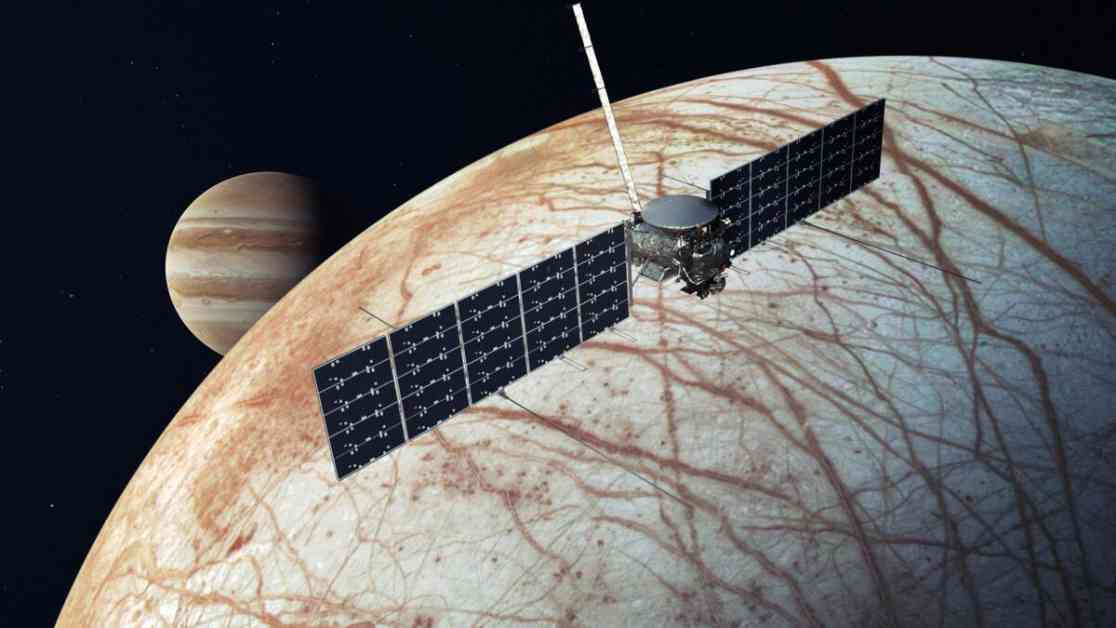In 2015, Bill Nye had a conversation with President Obama about the importance of space exploration, specifically a mission to Jupiter’s moon Europa. After years of advocacy, NASA’s Jet Propulsion Laboratory in La Cañada Flintridge is set to launch the Europa Clipper spacecraft. This $5 billion probe will investigate the icy moon suspected of having a vast ocean capable of supporting life.
The mission to Europa is part of NASA’s ongoing quest to answer fundamental questions about our origins and the existence of life beyond Earth. Bill Nye emphasized the significance of this mission, stating that the discovery of life on another world could change the course of human history. The people working on this mission in Los Angeles County are at the forefront of potentially groundbreaking discoveries.
The Europa Clipper spacecraft, built by JPL and set to launch on a SpaceX rocket, will embark on a five-and-a-half-year journey to reach Jupiter’s moon. Europa’s unique characteristics, including its fast orbit around Jupiter and the presence of a subsurface ocean, make it an intriguing target for exploration. Scientists believe that Europa’s ocean may harbor organic compounds necessary for life.
Clipper will be the first mission to conduct a detailed study of Europa, orbiting Jupiter 80 times and making close flybys of the moon. By analyzing the magnetic field, gravity, and surface composition of Europa, scientists hope to confirm the existence of its ocean and search for signs of habitability. The spacecraft will also use penetrating radio waves to investigate the moon’s icy crust and heated mantle.
While Clipper is not the first mission to explore Europa, it represents a significant step forward in our understanding of this enigmatic moon. The mission’s success will depend on the expertise and dedication of JPL’s team, who have a proven track record in developing complex robotic missions for NASA.
The journey to Europa is not without challenges, as NASA faces budget constraints and project management issues. The agency’s focus on human spaceflight has led to decreased funding for large-scale science missions, impacting JPL’s future projects. Despite these challenges, the Europa Clipper mission stands as a testament to humanity’s enduring curiosity and quest for knowledge.
As the spacecraft prepares to depart for Jupiter, the scientific community eagerly anticipates the discoveries that await. Clipper’s findings could revolutionize our understanding of Europa and provide insights into the potential for life beyond our planet. The mission represents a bold and visionary endeavor that showcases the best of human ingenuity and exploration.
In the coming years, as Clipper explores Europa and unlocks its secrets, we will be reminded of the profound impact that space exploration can have on our understanding of the universe and our place within it. The mission to Jupiter’s moon is a testament to the power of science to transcend boundaries and inspire generations to push the boundaries of what is possible.



























